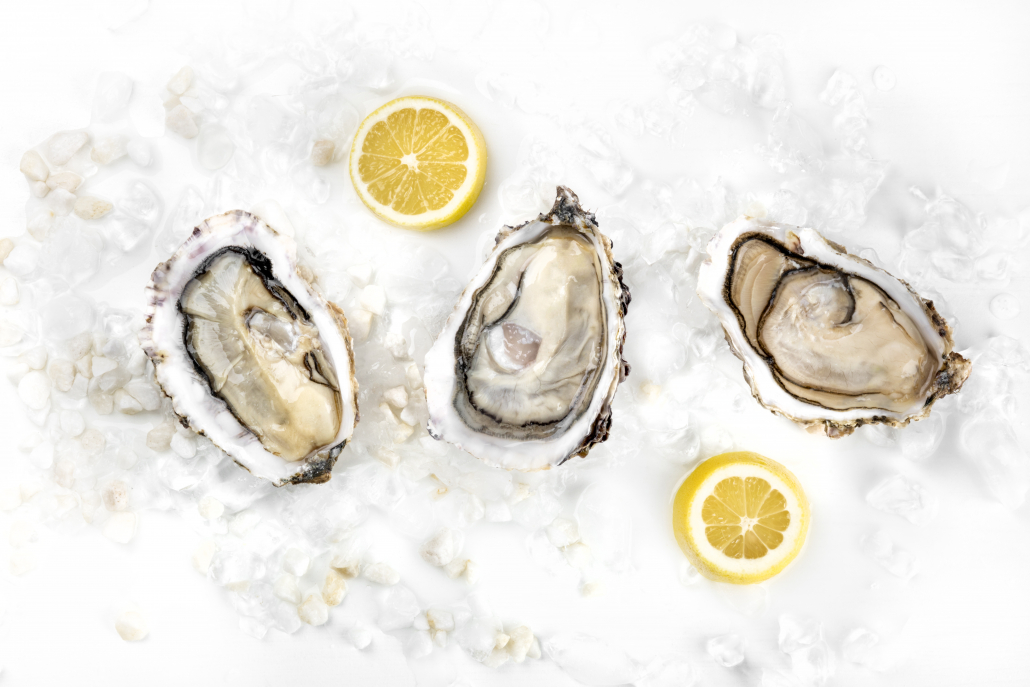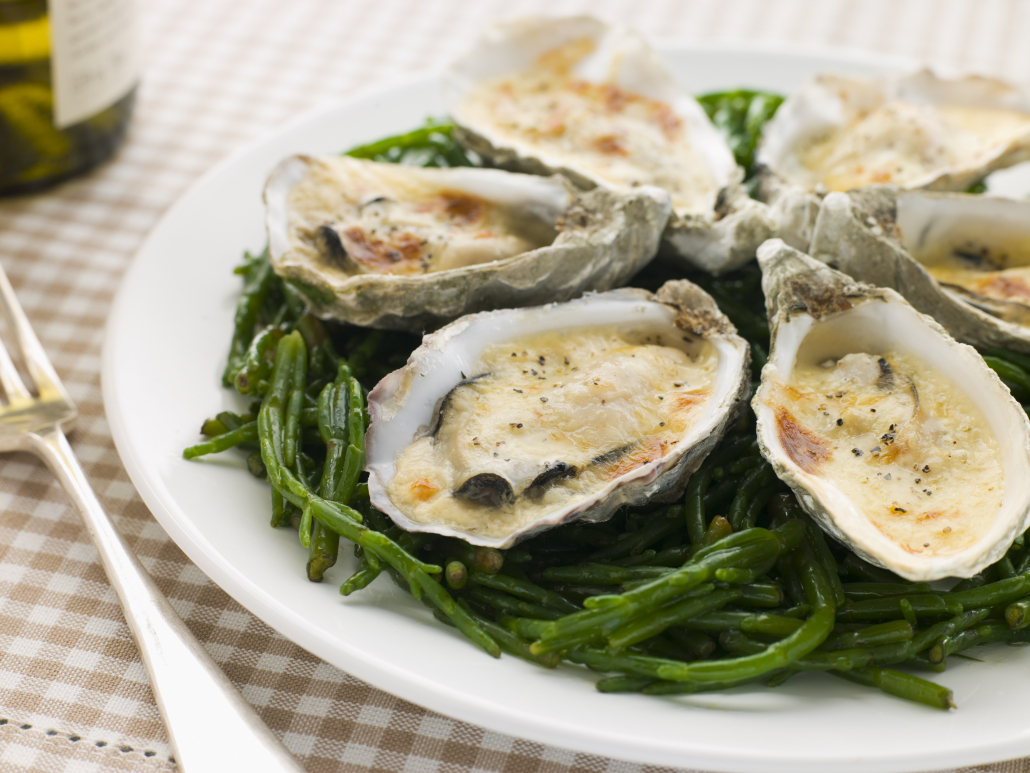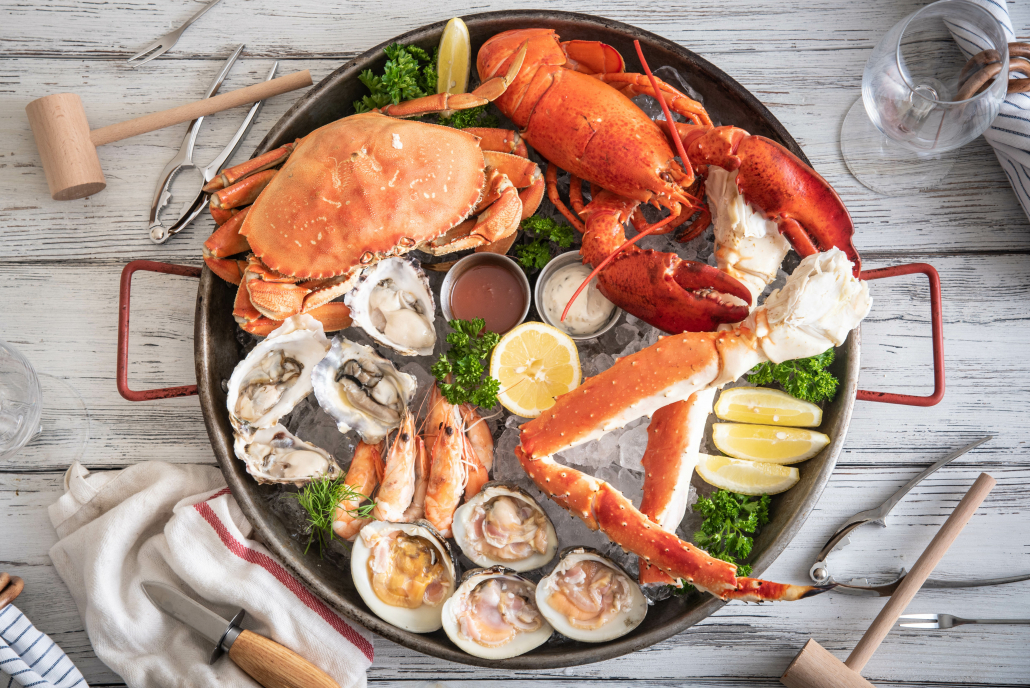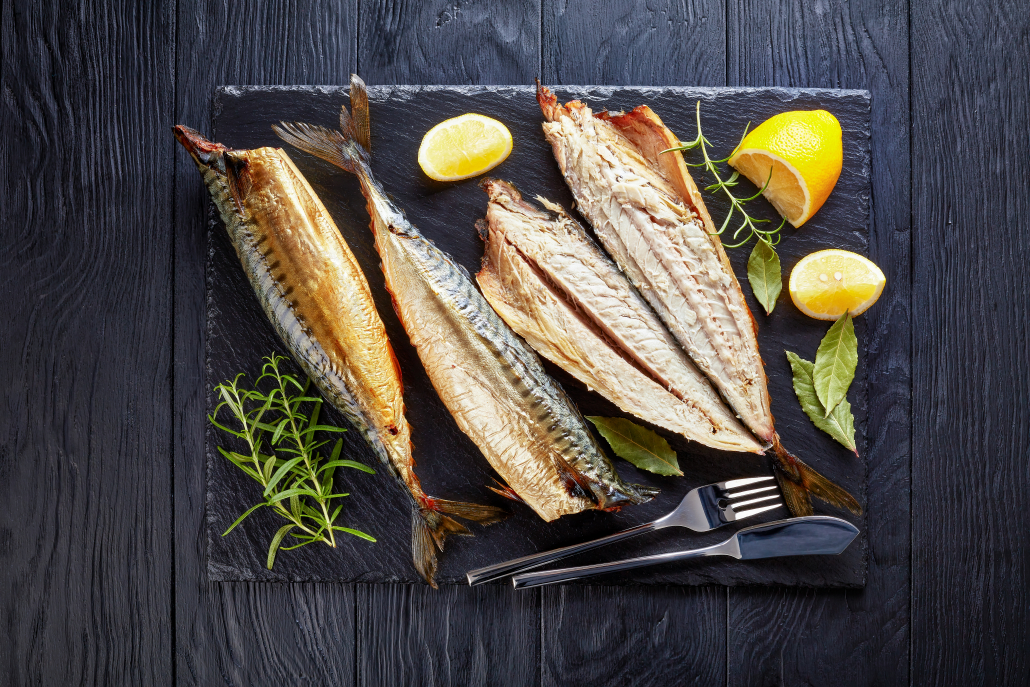We include products in articles we think are useful for our readers. If you buy products or services through links on our website, we may earn a small commission.
Are Oysters Good for You? What the Science Says

Table of Contents
Many people enjoy oysters for their unique texture, subtle flavors, and even proclaim their aphrodisiac effects. Yet others worry that these filter feeders might be a source of toxins. This all leads to the question, are oysters good for you?
In this article, we’ll explore the incredible health benefits (and potential risks) of these special mollusks.
What are Oysters?
Oysters are soft, plump creatures protected by a uniquely shaped outer shell. As mentioned above, oysters are essentially little filters that either feed or process whatever floats through the ocean and passes their way.
Humans have been eating oysters for hundreds of thousands of years. Ancient oyster shells have been found in caves, caverns, and other prehistoric sites.
And no wonder — the inner body (also called the ‘meat’) of an oyster provides excellent nutrition to humans of all ages.
Oyster Nutrition
In a world whose topsoil has been stripped of many important trace minerals, these nutrient-loaded bivalves provide a much-needed way to round out your diet.
Just 3.5 ounces of oysters provides many hard-to-get vitamins and minerals.
| Raw Oyster Calories | 68 calories | % RDV |
| Protein | 7 grams | 8% |
| Fat | 2.5 grams | 1% |
| Carbs | 3.9 grams | 4% |
| Vitamin A | 100 IU | 2% |
| Vitamin D | 320 IU | 80% |
| Vitamin E | 1 mg | 4% |
| Vitamin K | 0 mcg | 0% |
| Vitamin B1 | 0.1 mg | 7% |
| Vitamin B3 | 1.4 mg | 7% |
| Vitamin B12 | 19.5 mcg | 324% |
| Iron | 6.7 mg | 37% |
| Magnesium | 47 mg | 12% |
| Phosphorus | 135 mg | 14% |
| Zinc | 90.8 mg | 605% |
| Copper | 4.5 mg | 223% |
| Manganese | 0.4 mg | 18% |
| Selenium | 63.7 mcg | 91% |
Calories in Oysters
As you can see from above, oysters are an incredibly low-calorie food, yet loaded with nutrients.
The 3.5 ounce serving shown above contains only 68 calories and provides well over 100% of your RDV for B12, zinc, and copper — and over 75% of your RDV for vitamin D and selenium.
Oyster protein is a truly complete protein that’s rich in lysine. This amino acid counterbalances the tryptophan found in land animals.
Oysters also have an impressive fatty acid profile. They’re simultaneously high in omega 3’s and low in omega 6’s, promoting a ratio that research has shown can downregulate oxidation and inflammation.
Let’s take a look at some of the very top highlights of the humble oyster’s magisterial nutrition.
Vitamin B12
B12 is considered one of the most important B vitamins. It assists with energy generation and energy flow throughout the central nervous system. Many older adults are deficient in B12…but oysters offer an easy whole-food solution.
Zinc
Zinc is a naturally occurring mineral that helps regulate immune and metabolic health. Just 3.5 ounces of oysters contains over 600% of your RDV.
Zinc works with other fat-soluble vitamins, including A, D, E, and K, to regulate many critical body functions from immunity to bone health. Traditional diets often featured these nutrients together.
Selenium
Selenium is another natural mineral that contributes to health and wellness. It helps speed up thyroid function, which in turn can boost your metabolic rate, giving you more energy.
Selenium also promotes ‘clean’ energy generation, acting as a powerful antioxidant to defend against damaging free radicals.
Vitamin D
Vitamin D is unique in the sense that it’s both a vitamin and a hormone. Vitamin D is essential for maintaining several facets of good health. It boosts the immune system, promotes growth, and works with calcium and vitamin K to strengthen bones.
If you aren’t able to get vitamin D from the sun, getting it from foods becomes paramount.
Iron
The iron you get from oysters is used by your body to make the proteins that carry oxygen and CO2 throughout your body. Many people (especially premenopausal women) are deficient in iron, which can make you feel drained and starved for air if the deficiency isn’t resolved.
Oyster Health Benefits
When it comes to answering the question, are oysters are good for you, oysters’ nutritional load and their associated benefits is the best place to look. Here are three top highlights–Oysters have been shown to:
- Reduce oxidation
- Increase fertility
- Improve body composition
Reduced Oxidation
Several vitamins and minerals found in oysters double as antioxidants, including zinc, vitamin D, vitamin B12, and selenium.
These substances can reduce oxidative stress — something many biochemists and biologists view as the ‘rust’ of life — and improve overall health in the process.
While high oxidative stress has been correlated with cancer, heart problems, and brain fog, eating a diet rich in antioxidants may reverse these ailments.
Studies show that people who eat larger amounts of antioxidants have a reduced risk of heart disease and cancer.
In addition to all the ‘regular’ antioxidants, oysters also offer a newly-discovered antioxidant called DHMBA, or 3,5-Dihydroxy-4-methoxybenzyl alcohol.
DHMBA has a similar chemical structure to fellow antioxidants — yet it’s tested in at 15 times more antioxidant power than synthetic vitamin E.
DHMBA may also protect the liver from the oxidative stress that comes with eating a high-PUFA, standard American diet. One in-vitro study found that this antioxidant protected liver cells from being damaged by oxidative stress.
DHMBA may even reduce the oxidation of ‘bad’ cholesterol. In other words, it appears to be a truly systemic antioxidant.
Increased Fertility
Oysters are well-known for their aphrodisiac qualities. They’re purported to heighten sexual arousal and desire in both men and women.
The realization that oysters could boost libido began in the 1700s when the Italian adventurer Cassanova credited oysters for fueling his equally adventurous sex life.
Cassanova’s oyster claim was validated by the scientific community in 2005 when chemistry professor George Fisher discovered that mussels and oysters contained amino acids that boosted sex hormone levels.
These succulent bivalves might be a great choice if you’re hoping to set yourself up for maximum natural fertility. The vitamins and minerals in oysters, particularly their B vitamins, may also promote the health of the growing fetus.
Improved Body Composition
Nutritionists have known for decades that high-protein foods improve body composition. By providing your body with a much-needed structure, protein can help you preserve and gain lean mass.
Oyster protein comes without many carbohydrates, making it a great way to ensure adequate protein intake. Just 3.5 ounces of oysters contain 7 grams of complete, balanced protein.
Protein helps with satiety, too. Studies show that high-protein meals increase your body’s production of ‘satiety hormones’ like CCK while reducing the production of ‘hunger hormones’ like grehlin. This hormonal shift can lead to weight loss even if no other dietary changes are made.
Risks of Eating Oysters
As great as oysters may be, they’re not without some potential drawbacks. Below are a few things to look out for when eating oysters.
Vibrio Contamination
Eating raw oysters may increase your chance of bacterial infections. Raw oysters and other shellfish may harbor harmful vibrio bacteria. While Vibrio bacteria are rare, exposure to them can be very serious. The side effects of infection include nausea, diarrhea, vomiting, and sepsis.
Other Contaminants
Oysters can also harbor other types of gram-negative bacteria, including enteroviruses.
Because of their status as natural ‘filters,’ oysters may also contain heavy metals — though they contain less mercury than many other types of seafood. Pregnant women should avoid eating raw oysters.
Mineral Imbalances
Oysters and beef liver have something in common: both contain so many nutrients that eating too much, too often can lead to mineral toxicity. In the case of oysters, this little mollusk contains so much zinc that it should only be eaten occasionally. Eating them once or twice a week should land you in a nutritional sweet spot.
Make sure you balance your zinc intake with enough copper — especially if you really enjoy oysters!
How to Cook Oysters
Oysters are tasty raw, but for the reasons listed above, not everyone may want to go that route. We’re thankful to report that they’re equally tasty grilled or fried.
Grilled Oysters Recipe

This carnivore and keto-friendly (especially pescatarian keto) recipe is healthy and totally delish.
Ingredients
- 2 dozen fresh oysters
- 2 cups melted butter
- 1 cup grated Parmesano Reggiano
- 2 minced garlic cloves (optional)
- 1 tsp paprika
- ½ tsp pepper
Instructions
Step 1: Heat your grill 450°.
Step 2: Blend all ingredients except oysters in a food processor.
Step 3: Arrange oysters on the first layer of the grill. Scoop two teaspoons of butter blend onto each oyster.
Step 4: Grill for 7 minutes, uncovered. The edges of each oyster should begin to curl.
Step 5: Remove from heat, let cool, and enjoy.
Keto Coconut Fried Oysters Recipe

For even more variety when it comes to getting your oyster fix try this gluten-free keto fried oyster recipe:
Ingredients
- 1 dozen fresh oysters
- 1/2 cup coconut flour
- 3 tbsp coconut oil
- 1 egg
- Salt
Instructions
- Beat the egg in a bowl, then set aside.
- Place the coconut flour and salt in another bowl, then set it aside too.
- Heat your coconut oil in a large pan on high heat.
- Dip each oyster in egg, then in flour.
- Place oysters on the pan and fry for 2-3 minutes on each side. They should turn golden brown.
Oysters on Carnivore Diet
The question, are oysters healthy, gets an extra big, yes! When they’re part of your carnivore diet food list.
Oysters have different fatty acid and amino acid profiles than land animals do, making them a great way to ‘balance out’ all the muscle meat and organ meats that you eat on your carnivore diet meal plan.
Oysters can also help balance out your body’s omega 3:6 ratio, which may be less than ideal if you’re coming from a standard American diet.
Just remember that more isn’t always better — we’d encourage you to limit your oyster consumption to a maximum of one dozen oysters, two times per week. This will help you avoid any vitamin and mineral toxification risks.
Oysters: Food For Thought
Oysters are good for your health, and apparently, they might just have something to teach us about the nature of life. Instead of getting worn down by life’s difficulties, maintaining a constructive mindset can turn life’s annoyances into…pearls!
“For thousands of years the Pearl oyster has been there, as a lesson for human beings, but we have never understood it. And what does it teach us? Simply that, if we wrap our difficulties and all that annoy us in a soft, luminous, opalescent matter, we will be very rich indeed. So, from now on, instead of complaining and doing nothing to stop yourself from getting worn down by your difficulties, set to work to secrete this special matter and wrap them up in it.”
– Mystic Omraam Mikhael Aivanhov
Are Oysters Good for You? The Bottomline
Yes, oysters are incredibly nutritious and very good for you indeed. Zinc, copper, B12, vitamin D, essential fatty acids, antioxidants — they’ve pretty much got it all.
So enjoy these fruits of the sea, knowing that they’re offering your body (and sex life) more than just a succulent treat.














